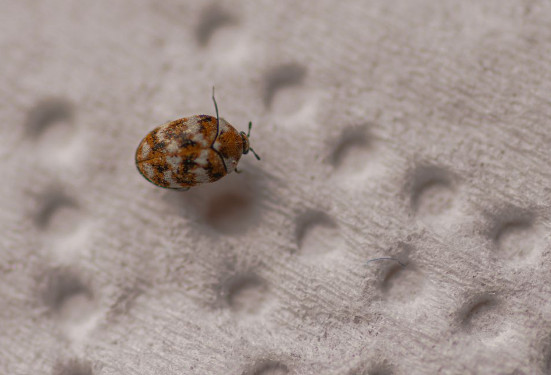Does vinegar work on beetles? + video
Beetles are a diverse group of insects that can be found in various habitats worldwide. While some beetles play essential roles in ecosystems, others can become nuisances when they invade our homes or gardens. This has led to the exploration of numerous methods to control or repel these insects. One such popular method is the use of vinegar, a common household item known for its acidic properties. This essay aims to investigate the effectiveness of vinegar as a beetle repellent, considering both scientific studies and anecdotal evidence.
7 Effective Ways to Kill Pests with Baking Soda and Vinegar :
Understanding Vinegar’s Properties:
Vinegar, primarily composed of acetic acid, is a liquid produced through the fermentation of ethanol by acetic acid bacteria. It is widely used for culinary, cleaning, and medicinal purposes. Due to its acidic nature, vinegar has been suggested as a potential insect repellent, including beetles, owing to their aversion to acidic substances.

Scientific Studies:
Several scientific studies have explored the effects of vinegar on various insects, including beetles. One study published in the Journal of Economic Entomology in 2010 examined the repellency of different vinegar concentrations against several stored-product beetles. The researchers found that acetic acid, the active ingredient in vinegar, demonstrated repellent effects on certain beetle species. However, the study noted that the repellency varied depending on the specific beetle species and the concentration of acetic acid used.
Another study conducted by researchers at Iowa State University in 2014 investigated the repellent properties of vinegar against the Japanese beetle, a common garden pest. The researchers found that spraying vinegar solutions directly on plants did not significantly deter the beetles. However, they observed that using vinegar traps as a form of attractant to lure and subsequently trap the beetles was effective in reducing their population.
Anecdotal Evidence:
While scientific studies provide valuable insights, anecdotal evidence also plays a role in evaluating vinegar’s effectiveness as a beetle repellent. Many individuals have reported success in repelling beetles using vinegar solutions. Home gardeners often employ vinegar sprays on plants to deter beetles and other pests. Additionally, people have reported success in repelling beetles indoors by using vinegar-based cleaning solutions or placing bowls of vinegar near entry points.
Limitations and Considerations:
Despite the promising findings and anecdotal evidence, it is crucial to recognize the limitations of vinegar as a beetle repellent. The effectiveness of vinegar may vary depending on the beetle species, their behavior, and environmental factors. Additionally, vinegar may have a limited effect on established beetle populations, as it primarily acts as a repellent rather than a lethal control method.
Conclusion:
In conclusion, vinegar has shown potential as a beetle repellent based on scientific studies and anecdotal evidence. The acetic acid in vinegar has demonstrated repellent effects on certain beetle species, and vinegar traps have proven effective in reducing populations. However, the efficacy of vinegar may vary depending on beetle species, concentrations used, and environmental factors. While vinegar can be a useful tool for repelling beetles, it should be considered as part of an integrated pest management strategy that combines multiple methods for optimal control. Further research is warranted to explore vinegar’s repellent properties in different beetle species and environments, ultimately enhancing our understanding of its potential applications in pest management.
